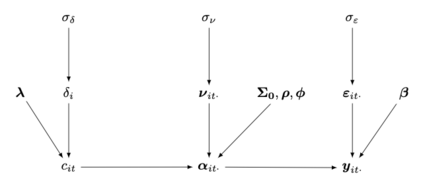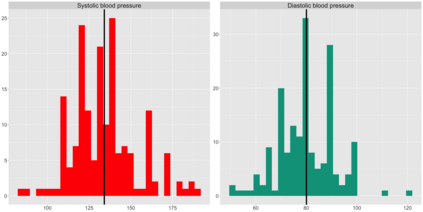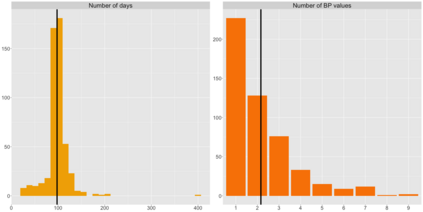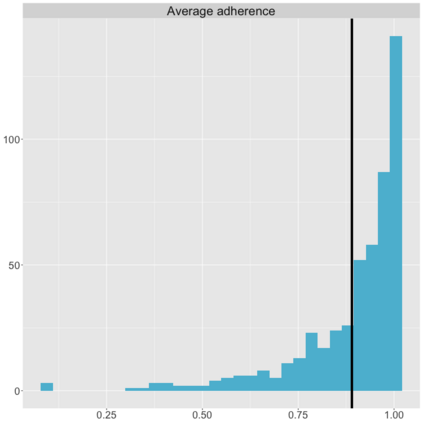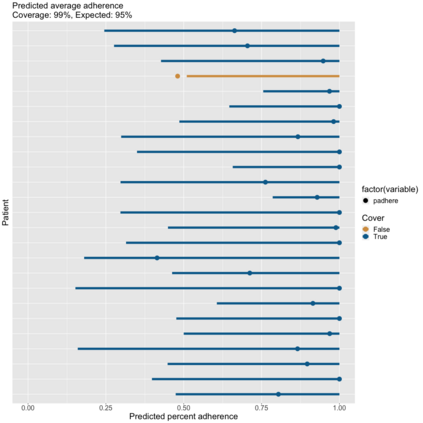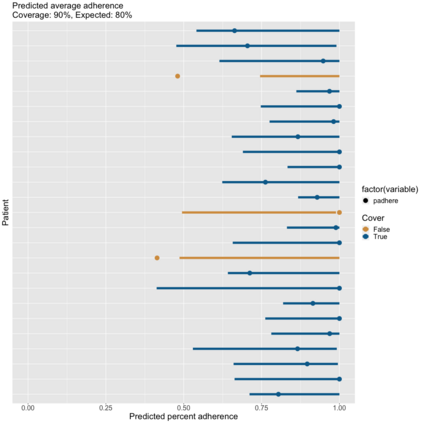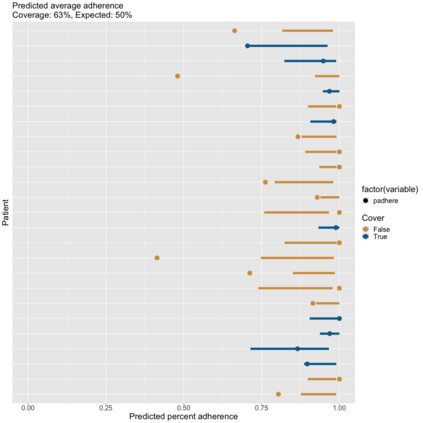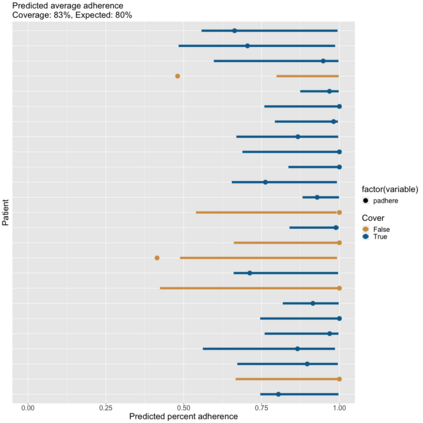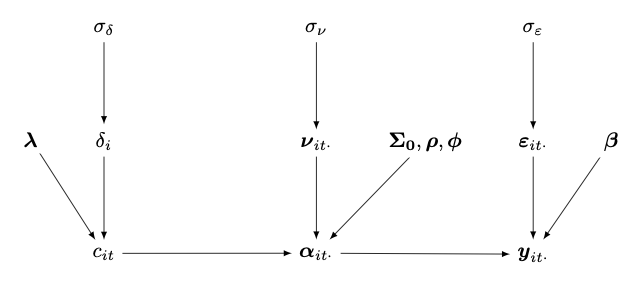Medication adherence is a problem of widespread concern in clinical care. Poor adherence is a particular problem for patients with chronic diseases requiring long-term medication because poor adherence can result in less successful treatment outcomes and even preventable deaths. Existing methods to collect information about patient adherence are resource-intensive or do not successfully detect low-adherers with high accuracy. Acknowledging that health measures recorded at clinic visits are more reliably recorded than a patient's adherence, we have developed an approach to infer medication adherence rates based on longitudinally recorded health measures that are likely impacted by time-varying adherence behaviors. Our framework permits the inclusion of baseline health characteristics and socio-demographic data. We employ a modular inferential approach. First, we fit a two-component model on a training set of patients who have detailed adherence data obtained from electronic medication monitoring. One model component predicts adherence behaviors only from baseline health and socio-demographic information, and the other predicts longitudinal health measures given the adherence and baseline health measures. Posterior draws of relevant model parameters are simulated from this model using Markov chain Monte Carlo methods. Second, we develop an approach to infer medication adherence from the time-varying health measures using a Sequential Monte Carlo algorithm applied to a new set of patients for whom no adherence data are available. We apply and evaluate the method on a cohort of hypertensive patients, using baseline health comorbidities, socio-demographic measures, and blood pressure measured over time to infer patients' adherence to antihypertensive medication.
翻译:坚持治疗是临床护理中一个普遍关切的问题。坚持治疗不力是需要长期药物治疗的慢性疾病患者面临的一个特殊问题,因为坚持治疗不力可能导致治疗结果不成功,甚至可预防的死亡。现有的收集患者坚持治疗信息的方法是资源密集型的,或者无法以高精确度检测低患者。认识到诊所检查中记录的卫生措施比病人坚持治疗更可靠,我们根据纵向记录的健康措施制定了一种方法来推算坚持治疗率,这些措施可能受到时间变化的坚持治疗行为的影响。我们的框架允许纳入基本健康特征和社会人口数据。我们采用了模块式的推导方法。首先,我们把一套培训病人的培训模式分为两部分,这些病人拥有从电子药物监测中获得的详细坚持治疗数据。一个模型部分预测只有从基线健康和社会-人口信息中进行更可靠的记录,而其他部分则根据坚持和基线健康措施预测长期健康措施。从这一模型中测得的相关模型参数的缩略图来自Markov Conter Carlo的坚持治疗方法。第二,我们采用了一种将药物坚持程度推导的方法,从具有时间序列的病人,我们用一种固定的坚持治疗方法来计算。

